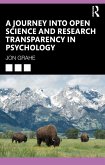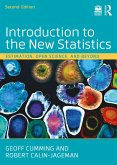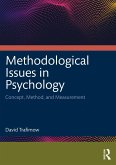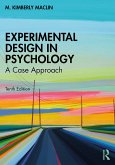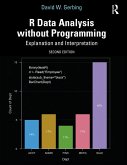This book considers all the fundamental topics related to the open science movement, including: (a) causes of and responses to the Replication Crisis, (b) crowdsourcing and meta-science research, (c) preregistration, (d) statistical approaches, (e) questionable research practices, (f) research and publication ethics, (g) connections to career topics, (h) finding open science resources, (i) how open science initiatives promote diverse, just, and sustainable outcomes, and (j) the path moving forward. Each topic is introduced using terminology and language aimed at intermediate-level college students who have completed research methods courses. But the book invites all readers to reconsider their research approach and join the Scientific Revolution 2.0. Each chapter describes the associated content and includes exercises intended to help readers plan, conduct, and share their research.
This short book is intended as a supplemental text for research methods courses or just a fun and informative exploration of the fundamental topics associated with the Replication Crisis in psychology and the resulting movement to increase scientific transparency in methods.
Dieser Download kann aus rechtlichen Gründen nur mit Rechnungsadresse in A, B, BG, CY, CZ, D, DK, EW, E, FIN, F, GR, HR, H, IRL, I, LT, L, LR, M, NL, PL, P, R, S, SLO, SK ausgeliefert werden.
"Who knew that rock music, national parks, and replication could be woven together into an accessible narrative that introduces the reader to open science principles and practices? Grahe provides an effective introduction to research rigor and transparency with a perfect blend of conceptual instruction, concrete examples, and learn-by-doing. After completing A Journey into Open Science and Research Transparency in Psychology readers won't just know about open science, they'll be doing it themselves!" -- Brian Nosek is co-Founder and Executive Director of the Center for Open Science. He is also a Professor in the Department of Psychology at the University of Virginia, USA
"Grahe's visionary textbook leverages the potential for psychology undergraduates not only to learn about research methods but also to do valuable projects themselves. Armed with cutting-edge tools for open, transparent, and reproducible research, a history of the recent upheavals in science, and an understanding of the relation between scientific and societal values, students will be prepared for the conceptual and technical scientific challenges of the future." - Barbara Spellman, Professor of Psychology, University of Virginia, USA.



